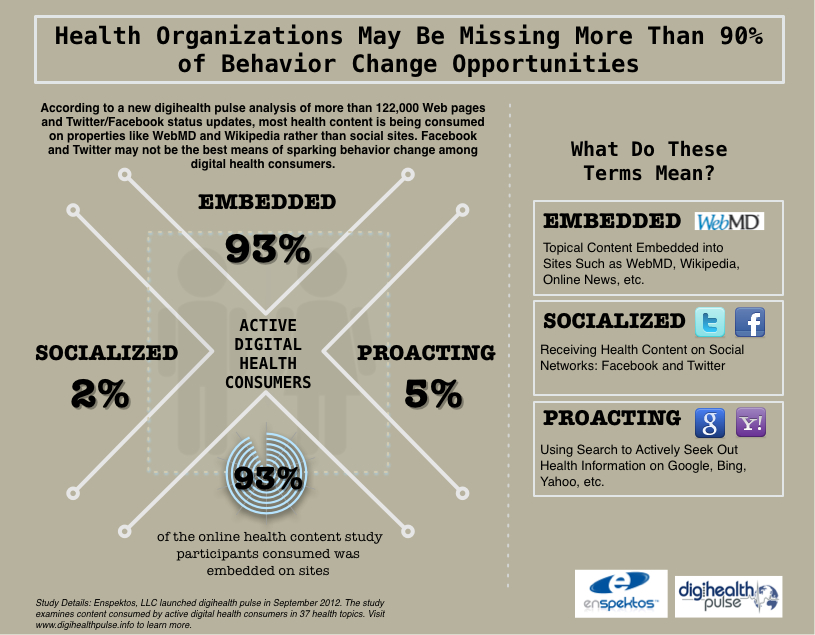Is it possible that health organizations have become over-reliant on Facebook, Twitter and Google to deliver health information? These two social properties receive the lion’s share of attention. We have also been taught that search is the gateway to the health Web.
Is it possible that health organizations have become over-reliant on Facebook, Twitter and Google to deliver health information? These two social properties receive the lion’s share of attention. We have also been taught that search is the gateway to the health Web.
New data on what online health content people actually consume (versus what they report on online surveys) suggests those focusing primarily on these sites could be missing more than 90% of opportunities to shape health behavior. For executives seeking to use the Web to encourage healthier eating, boost vaccinations, change how people exercise, promote medication compliance and modify other health behaviors this is critical information.
Our conclusions are based on an analysis of more than 122,000 Web pages and Twitter/Facebook status updates consumed from September 20 to October 1, 2012 by people participating the Digital Health Consumer Tracking Study or digihealth pulse. We are tracking (in real-time) online and social media health content study participants are encountering across 39 topics, including Obamacare, heart disease and sexually transmitted diseases. (Non-advertising or earned/owned media content is being collected.)
